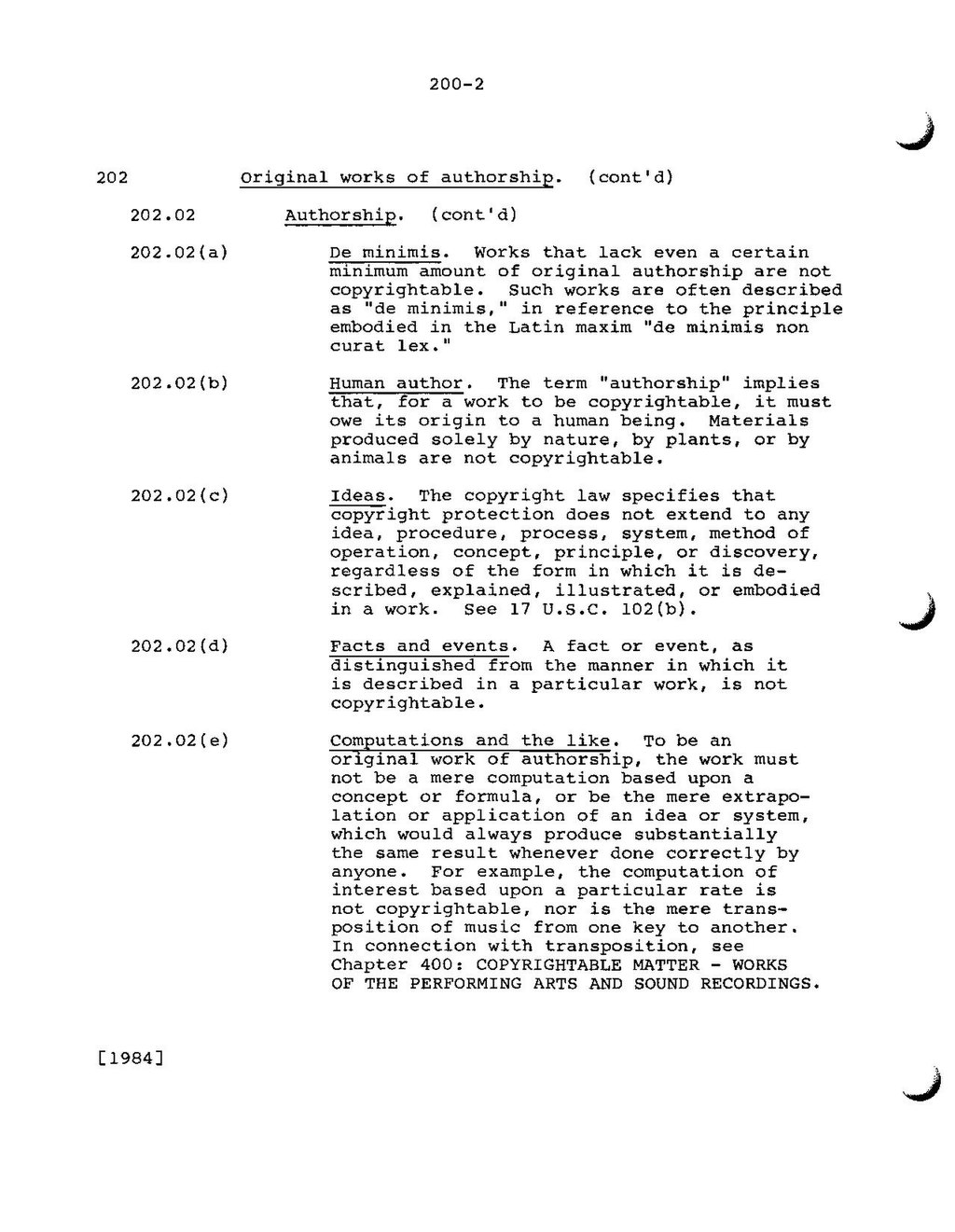200-2
202
Original works of authorship. (cont'd)
202.02
Authorship. (cont'd)
202.02(a)
De minimis. Works that lack even a certain minimum amount of original authorship are not copyrightable. Such works are often described as "de minimis," in reference to the principle embodied in the Latin maxim "de minimis non curat lex."
202.02(b)
Human author. The term "authorship" implies that, for a work to be copyrightable, it must owe its origin to a human being. Materials produced solely by nature, by plants, or by animals are not copyrightable.
202.02(c)
Ideas. The copyright law specifies that copyright protection does not extend to any idea, procedure, process, system, method of operation, concept, principle, or discovery, regardless of the form in which it is described, explained, illustrated, or embodied in a work. See 17 U.S.C. 102(b).
202.02(d)
Facts and events. A fact or event, as distinguished from the manner in which it is described in a particular work, is not copyrightable.
202.02(e)
Computations and the like. To be an original work of authorship, the work must not be a mere computation based upon a concept or formula, or be the mere extrapolation or application of an idea or system, which would always produce substantially the same result whenever done correctly by anyone. For example, the computation of interest based upon a particular rate is not copyrightable, nor is the mere transposition of music from one key to another. In connection with transposition, see Chapter 400: COPYRIGHTABLE MATTER - WORKS OF THE PERFORMING ARTS AND SOUND RECORDINGS.
[1984]
